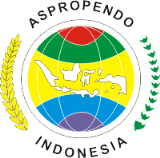PENGGUNAAN INTERNET DAN PELUANG BERWIRAUSAHA DI INDONESIA
Abstract
Currently, the internet is a necessity in social and economic life which provides convenience in communication and social interaction. In addition, the presence of the internet, which is supported by advances in digital technology, is expected to provide business opportunities. Internet access has become easier with the rapid use of cellular telephones. This study aims to examine the effect of internet use on entrepreneurial opportunities in Indonesia through descriptive analysis and binary logistic regression approaches. This research uses data from the 2019 National Socio-Economic Survey. Entrepreneurship in this research is limited to individuals who work assisted by permanent workers or paid workers in the age range of 25 to 44 years. Of the 348735 samples that were the unit of analysis, 7108 were entrepreneurs or about 2.04 percent. This study found that individuals who use the internet have a higher chance of becoming an entrepreneur than individuals who do not use the internet and this finding is statistically significant. In addition, the level of education significantly affects individuals to become entrepreneurs, but individuals with higher education have a lower tendency to become entrepreneurs than those with high school education and below.
Keywords: Binary Logistic Regression, Entrepreneurship, InternetFull Text:
PDF (Bahasa Indonesia)References
Asosiasi Penyelenggara Jasa Internet Indonesia. (2018). Penetrasi & profil perilaku pengguna internet Indonesia. Apjii, 51. https://apjii.or.id/survei2018s/download/TK5oJYBSyd8iqHA2eCh4FsGELm3ubj
Barhatov, V., Campa, A., & Pletnev, D. (2018). The impact of internet-technologies development on small business success in Russia. Procedia - Social and Behavioral Sciences, 238, 552–561. https://doi.org/10.1016/j.sbspro.2018.04.035
Borjas, G. J. (2016). Labor economics. New York : Mc Graw Hill Education.
BPS. (2018). Statistik telekomunikasi Indonesia 2018. Jakarta: Badan Pusat Statistik.
BPS. (2019a). Indeks pembangunan teknologi, informasi, dan komunikasi (ICT Development Index) 2018. In Subdirektorat Statistik Komunikasi dan Teknologi Informasi.
BPS. (2019b). Statistik e-commerce 2019. Badan Pusat Statistik. https://www.bps.go.id/publication/2019/12/18/fd1e96b05342e479a83917c6/statistik-e-commerce-2019.html
Castellacci, F., & Viñas-Bardolet, C. (2019). Internet use and job satisfaction. Computers in Human Behavior, 90, 141–152. https://doi.org/10.1016/j.chb.2018.09.001
Cuberes, D., Priyanka, S., & Teignier, M. (2019). The determinants of entrepreneurship gender gaps: A cross-country analysis. Review of Development Economics, 23(1), 72–101. https://doi.org/10.1111/rode.12537
Cumming, D., & Johan, S. (2010). The differential impact of the internet on spurring regional entrepreneurship. Entrepreneurship: Theory and Practice, 34(5), 857–883. https://doi.org/10.1111/j.1540-6520.2009.00348.x
Dettling, L. J. (2017). Broadband in the labor market: The impact of residential high-speed internet on married women’s labor force participation. Industrial and Labor Relations Review, 70(2), 451–482. https://doi.org/10.1177/0019793916644721
Fairlie, R. W. (2014). The personal computer and entrepreneurship.
Jinchuan, S., & Weiwei, W. (2017). The impact of internet use on entrepreneurship: An empirical analysis based on the micro-level data. Journal Of Zhejiang University, 3(4), 159–175. https://doi.org/10.3785/j.issn.1008-942X.CN33-6000/C.2016.09.083
Kotnik, P., & Stritar, R. (2015). ICT as the facilitator of entrepreneurial activity: An empirical investigation. Amfiteatru Economic, 17(38), 277–290.
Moyi, E. D. (2019). The effect of mobile technology on self-employment in Kenya. Journal of Global Entrepreneurship Research, 9(1), 1–13. https://doi.org/10.1186/s40497-019-0180-4
Nachrowi, N. D., & Usman, H. (2008). Penggunaan teknik ekonometri (edisi revisi). PT RajaGrafindo Persada.
Qorraj, G. (2017). Does education matter for entrepreneurship activities? The case of Kosovo. International Journal of Management, Knowledge and Learning, 6(1), 131–144.
Reynolds, P. D., Autio, E., & Camp, M. (2001). Global entrepreneurship monitor: 2001 executive report. Regional Studies.
Wynarczyk, P., & Graham, J. (2013). The impact of connectivity technology on home-based business venturing: The case of women in the North East of England. Local Economy, 28(5), 451–470. https://doi.org/10.1177/0269094213491700
Zhao, F., & Collier, A. (2017). Digital entrepreneurship: Research and Practice (PDF download available). 9th Annual Conference of the EuroMed Academy of Business, September, 2173–2182. https://www.researchgate.net/publication/309242001_Digital_Entrepreneurship_Research_and_Practice
Zhu, Z., Leng, C., Chen, Q., & Delgado, M. S. (2019). The impact of internet use on entrepreneurship of migrant workers in China. 2019 Annual Meeting, July 21-23, Atlanta, Georgia 290988, Agricultural and Applied Economics Association.
Refbacks
- There are currently no refbacks.













